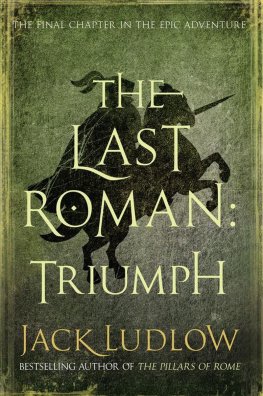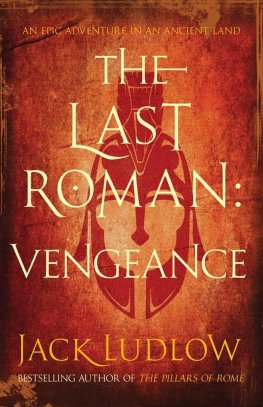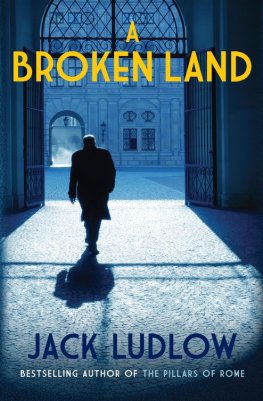Jack Ludlow - A Bitter Field
Here you can read online Jack Ludlow - A Bitter Field full text of the book (entire story) in english for free. Download pdf and epub, get meaning, cover and reviews about this ebook. genre: Detective and thriller. Description of the work, (preface) as well as reviews are available. Best literature library LitArk.com created for fans of good reading and offers a wide selection of genres:
Romance novel
Science fiction
Adventure
Detective
Science
History
Home and family
Prose
Art
Politics
Computer
Non-fiction
Religion
Business
Children
Humor
Choose a favorite category and find really read worthwhile books. Enjoy immersion in the world of imagination, feel the emotions of the characters or learn something new for yourself, make an fascinating discovery.

- Book:A Bitter Field
- Author:
- Genre:
- Rating:4 / 5
- Favourites:Add to favourites
- Your mark:
- 80
- 1
- 2
- 3
- 4
- 5
A Bitter Field: summary, description and annotation
We offer to read an annotation, description, summary or preface (depends on what the author of the book "A Bitter Field" wrote himself). If you haven't found the necessary information about the book — write in the comments, we will try to find it.
A Bitter Field — read online for free the complete book (whole text) full work
Below is the text of the book, divided by pages. System saving the place of the last page read, allows you to conveniently read the book "A Bitter Field" online for free, without having to search again every time where you left off. Put a bookmark, and you can go to the page where you finished reading at any time.
Font size:
Interval:
Bookmark:
Jack Ludlow
A Bitter Field
CHAPTER ONE
Callum Jardine was practised in the art of looking relaxed when he was not much more so, he observed, than those keeping an eye on his movements. The two men who had tailed him from the Marconi Wireless office, almost caricature Frenchmen in their berets, striped jerseys and too-clean blue overalls, were now sitting a few tables away, making a poor fist of their supposedly disinterested surveillance.
Their attempt to look like working men was risible; worse, they were fidgeting, acting as though he was about to get up any second, dash to the edge of the quay, jump into a boat and vanish, when in fact he was quite content, given he had nothing to do for several hours, to keep them in this cafe while he read his newspaper and consumed his petit dejeuner.
When not idly scanning the news he could watch the last of the fishing boats enter the harbour of La Rochelle to unload their overnight catch, which made it pleasant to sit and while away time on a fine late August morning, already warm and getting warmer, and to idly speculate about the history of a part of France he had never previously visited.
In a country where governments came and went with tedious regularity, in which politics and politicians seemed to operate on a revolving door, the same faces reappearing in various ministerial disguises, and one much given to strikes by dissatisfied workers, La Rochelle had an air of tranquillity belonging to a port and city that had been rich for millennia, a sort of bastion of a more conservative France.
The harbour reflected this longevity, dominated as it was by three medieval towers; they formed as well as narrowed the entrance to the inner anchorage, which made it easy to imagine how the locals had come by their wealth, with, over a millennium, ancient galleys and sailing ships needing to pass through that gap and pay for the privilege, an entry point for goods from all over the world, including at one time, highly profitable African slaves.
Little of that passed through now; the inner port had long been replaced by a large exterior commercial dock. It was now home to the fishing fleet and leisure craft: the yachts and motor vessels of affluent Frenchmen, the less significant craft of the weekend sailors as well as the bobbing small boats of indeterminate ownership that featured in every anchorage. The quayside reflected that change from commerce to leisure, being lined now with cafes and restaurants instead of the warehouses and ships chandlers of the past.
What had not changed was the noise created by the women who descended on to the quay of a morning to buy the fresh catch of silver-bodied fish, as well as to poke at the piles of still-live crustaceans crabs, langoustines and lobsters that were sold from sturdy tables. Such a sight reminded Cal of what he had witnessed as a growing child in Marseilles; his formative years had been spent in France, which allowed him to act and feel as relaxed as a native.
If he stiffened at all and he tried very hard not to it was brought on by the surprise, bordering on actual shock, of seeing a one-time fellow army officer, and more recently something of a comrade in a clandestine venture, approaching along the cobbled quay. What the hell was Peter Lanchester doing in La Rochelle?
As was Peters habit, he presented the picture of the perfect Englishman abroad, very erect in his cream linen suit and panama hat, with an MCC hatband and a matching red and yellow tie. The highly polished malacca cane he was carrying was an affectation, there for no other purpose than to beat out a tattoo on the pavement to complement that of his heels, or perhaps to swipe a less-than-respectful Johnny Foreigner.
Fearing he might approach and call out his name, Cal slowly raised his copy of Le Temps and pretended to read the front-page story about the continuing crisis in Czechoslovakia, though without being too obvious and hiding his whole face. He need not have worried; Peter might look and act the part of the typical milord on his travels but he was anything but a foppish fool and that raised newspaper seemed enough to tell him to mind what he said.
He stopped a few feet away and leant on his stick, looking around the harbour with an air of obvious frustration, as though the whole place had been built and designed to in some way thwart his purpose, a pose he held until the waiter emerged with a tray bearing two tiny coffee cups and a pair of morning stiffeners, probably brandies. That the fellow was about his occupation and there were two people waiting for their order impinged on Peter not at all.
In a loud voice and with an execrable French accent he demanded to be told the whereabouts of the Place du Marechal Joffre. The waiter was naturally offended both by his peremptory manner and the level of his demand, which caused Peter to add in an even louder voice and more intemperate manner, and one carrying the implication he was addressing a complete dolt, Je cherche lHotel Henri Quatre.
Even though the waiter stopped to answer and give him directions, this did nothing to modify Peters tone or ease the look of irritation on his face he wore the expression of a man absolutely certain he was likely to be lied to and sent in the wrong direction which had him reiterate the question to ensure he was being correctly advised.
Finally sure of his route and the veracity of the instructions, mouthing an abrupt and graceless Merci beaucoup, Peter imperiously rapped his cane on the flagstones and stomped off, followed by hard looks aimed at his very erect back. He had upset the waiter and most of the customers by his attitude, but he had also given Cal Jardine directions as to where they should meet.
The imperious act had also underlined the uselessness of the tail: Cals pair of watchers, unlike everyone else in the pavement cafe, had studiously avoided reacting to the scene, neither frowning nor producing the expressive Gallic shrugs of their fellow observers at such a display of Anglo-Saxon arrogance. He would need to lose them, but in a city centred around a port that had changed little since the seventeenth century he anticipated no problem.
Ordering another coffee in perfect French, albeit with a hint of Marseilles in the accent, Cal went back to his newspaper, once more wondering what Peter Lanchester was doing here in La Rochelle and, more importantly, why he needed to make contact with him in so brash a manner, indicating a need for haste.
That hinted at either danger or something very important, more likely the former, which had him reprising in his mind the precautions he had taken. There was a cargo of Czech ZB26 light machine guns sitting on a barge by an isolated inland farmhouse on the canal that led to the huge interior marshlands of the Marais-Poitevin and he needed to get them aboard a ship that night.
In the end speculation was wasted; he would have to meet with Peter and see what was up, so he picked up the bill from under the ashtray, extracted from his pocket enough francs to cover his purchases, plus a few coins as a pourboire, then stood slowly and stretched, like a man newly arisen from his bed. Such an act would cause no comment; it was, after all, not yet eight oclock.
Then he made a point of yawning as he looked around the active inner port, at the wooden fishing boats with their dirty beige sails now furled, at the weary-looking crews working on their nets, sniffing at the maritime and fresh-fish smell of the place, before patting his jacket pockets like a man checking for his keys, folding his paper and sauntering off.
The two watchers were not far behind, but too much so for a city full of narrow alleys enclosed by high buildings. These led to cobbled, crowded and constricted main streets designed for carts not motor vehicles, each with its charming shaded walkway, low colonnades supported by thick stone pillars, a feature of the city, which, at this time of day were thronged with locals heading to work in their shops and offices; losing a tail was childs play.
Font size:
Interval:
Bookmark:
Similar books «A Bitter Field»
Look at similar books to A Bitter Field. We have selected literature similar in name and meaning in the hope of providing readers with more options to find new, interesting, not yet read works.
Discussion, reviews of the book A Bitter Field and just readers' own opinions. Leave your comments, write what you think about the work, its meaning or the main characters. Specify what exactly you liked and what you didn't like, and why you think so.





